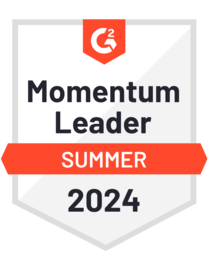When it comes to marketing on the web, there are a few tried and tested methods that have proven to bring in results. Today I’d like to share with you the 5 essential marketing strategies that every site owner should know. You can use one of these, a couple of these, or all of these, depending on the nature of your online business or membership site.
1. Pay Per Click (PPC)
Pay per click is an internet marketing model in which advertisers post ads on websites and search engines, but only pay a fee each time the ad is clicked. It’s a great, quick marketing strategy as you're essentially buying visits to your site, but it is a wildly popular method of advertising which can be quite inexpensive and effective if you know a bit about what you're doing. As opposed to pouring thousands of dollars into blasting out ads to the masses and seeing little return on investment, with pay per click advertising you are only paying for the actual clicks to your site. Additionally, in contrast to more traditional advertising methods, PPC is ultra trackable so you can always see how effective its going to be.
I highly recommend you monitor your PPC campaigns every day and set sensible, daily limits or things can get out of control. For people just dipping their toe into PPC, I'd start with Google PPC and make sure your campaigns only run on “Search,” not everywhere. I've found that for small campaigns, search will give you the biggest bang for your buck. I also recommend you do your research into the keywords you want to target and use “exact match.” This will ensure that your keywords only appear on the most relevant search results which will keep costs down and give you the best return on investment.
This article has a lot of great info on how to build a winning PPC campaign, with everything from selecting the right keywords to building PPC landing pages optimized for conversion.
2. Blogging + SEO
Producing high quality content and releasing it consistently is the best way to organically reel in members and customers. By maintaining a blog with relevant posts that use strategic keywords to optimize your SEO rankings, you ensure that your site is easily found by those in your niche market. Not only will you pop up in search engines as a top hit for your keywords, but you captivate their attention by offering a full database of blog posts on relevant topics. Don’t forget to throw in some opt-in boxes on your site and landing pages to start funneling these viewers into your mailing list!
It's important to note that Blogging & SEO are long term strategies as they take time and constant attention to cultivate. If you're in need of immediate traffic, you might want to launch a PPC campaign alongside your blogging & SEO strategies.
3. Email campaigns
Once you’ve built up a mailing list, you can start implementing an email marketing strategy. Your campaigns and newsletters can be daily, weekly, or monthly. Email campaigns can contain important information or announcements regarding your business or membership, promos for your latest blog posts, links to other industry reads, or just a quick hello to your fans, followers, members, and customers. Important considerations when it comes to email campaigns are the subject line (you want people to get a jist of what the email is about, but still be curious enough to click it open and read the whole thing), the length of the email, and the frequency with which you deliver them. If you’re using a tool like AWeber or MailChimp, you can very easily track your opens, clicks, complaints, and bounce rates from your account dashboard. Pay attention to these stats and tweak as you go!
Establishing an email list is very important because it can act as a hedge against the winds of change that come as Google changes it's algorithm, new competitors come into your space, and things generally change. As long as you've got a healthy email list, you have the ability to reach people and drive traffic to your site.
4. Social Media
Social media marketing is one of the trickiest but most popular methods of digital marketing. A few weeks ago, I shared my steps to planning a digital marketing strategy: pick your outlets, establish your digital uniform, build a posting schedule, create interactive and shareable content, and track your results. Of course, you should also be using keyword-related hashtags wherever applicable.
Another great tip is to not only promote your own content, but also share industry relevant content. In doing so, you show your fans and followers that you are a thought leader, not just a salesman, and you keep them coming back for the latest and the greatest in your field.
5. Affiliate programs
Affiliate marketing takes all of the above mentioned strategies and adds one important factor: your network of colleagues and peers. By attending network events, conferences, work parties, etc… you are bound to build up a network of people who are in similar fields and on similar levels. Partnering up with them from time to time to work on joint venture projects and offerings or simply to cross promote and take advantage of each other’s fan bases is a great way to tap into a different sector within your niche market. Also, you can't dis-count the power of referrals: a third-party endorsement of your business can change everything, and an affiliate program is a great way to get more of these.
Affiliate programs can be reward based (an affiliate gets a percentage cut of every sale they refer your way), blog based (an affiliate can write a guest post for your blog or can feature you as a guest writer on their blog), email based (an affiliate can blast out a promotion for your products/services to their entire mailing list), or social media based (an affiliate can schedule out tweets and Facebook posts for an upcoming launch or event you are hosting).
That’ll about do it! As with any marketing strategy, just remember that it is critical you track your results. Marketing requires constant watch and adjustment: what worked last month, might not work this month. Switch it up and see what your fans respond to best. Are they more likely to retweet your tweets or are they more likely to comment on your Facebook posts? How many click off to your site via links on social? How many click via links in emails? These stats can fluctuate almost everyday and it’s crucial that you keep tabs on how your fans’ viewing tendencies are changing.













Add a Comment